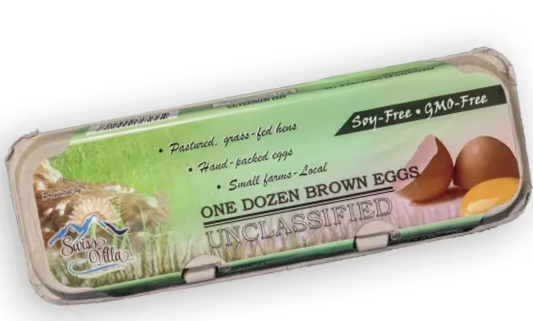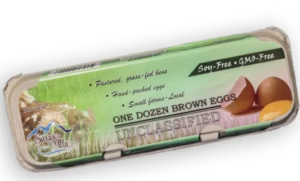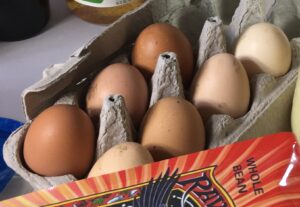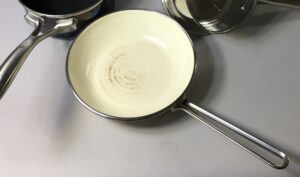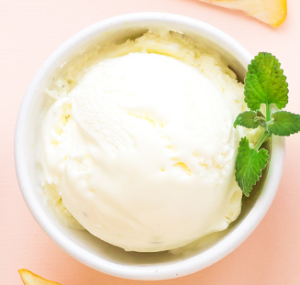Here is the link for the full list of real foods.
For people’s regular, daily food, I and others eat 3-4 medium/small eggs per day that are soy-free, free range fed, organic.
I make mine in 3 different styles during the day. Some days I eliminate the final egg meal.
A fruit, or type of sugar (clean honey, orange juice, or a tiny amount of pure white sugar perhaps made into custard) is usually recommended to consume with any egg meals.
I usually consume 1/2 of a mango during the breakfast meal and the other half during the lunch meal. And I use a spoon of clean honey for the other egg meal if taken.
Of particular note from Peat from some of my notes:
Fresh, cleanly handled, local farm eggs can be eaten raw and are excellent for the enzymes. Buy them fertile, free range, pasture fed. They are excellent for homemade milkshakes, a fast way to get extra protein. Use only the freshest, local, pasture-fed, free-range, etc. you can get
Regarding how many to eat:
“When the chickens eat mainly soy and corn, their eggs have lots of linoleic acid, so a dozen per week would be too many; with free range [pasture-fed], they are safer, but I think 2 or 3 daily would be the normal safe amount in a diet with plenty of saturated fats for balance.” -Ray Peat.
Sometimes eggs can be a cause of hot flashes in some women. Minimize or delete if a problem. See Ray Peat books, newsletters, consultations.
With the above said, I believe eggs are one of Peat’s very primary foods along with raw milk.
At one point, one of Peat’s personal every day foods was a quart of ice cream!
Unless you can make your own ice cream (clean fresh raw milk, soy-free fresh farm eggs and organic raw honey or a very small amount of non-GMO white sugar for sweetener only), most ice creams today are toxic wonderlands full of cancer causing ingredients and additives.
But eggs, and multiple numbers of eggs, can be eaten daily. Do everything you can to find LOCAL eggs from chickens that are free range fed on grasses and bugs—and when fed grains (like in the winter months) are NEVER fed soy.
The egg carton should say organic and pasture raised and if you’re lucky, also “soy free”.
If you purchase from your local raw milk farmer, ask about the grains fed to the chickens especially during the winter. The chickens should not be fed grain containing soy—or even feed containing seed oils either. Those eggs claiming to have extra Omega-6 or other garbage is the clue to stay away!
Buy the eggs from a local farmer even if they can’t claim “organic”, at least you know what they are eating and that they are fresh.
HACK: If you can, ask your farmer not to wash the eggs. They will store for weeks even sitting out on a counter-top (many claim unwashed and unrefrigerated eggs have more of a health benefit, I don’t know either way though I have done both), if they are unwashed and still have their naturally protective film that’s on the outside of the shell.
If the farmer does wash the eggs, ask them what they are washing them with. The correct answer is just water.
However, egg shells are porous once the outer thin membrane is washed off.
With what the eggs are washed is important because eggs once washed absorb air and other possible chemicals that are on the shells into the egg. You will want the egg to be as “nature intended” as possible.
If washed at all, or non-farmers store bought, then store them in the fridge. Farmers’ fresh eggs will still last for 3-4 weeks if really fresh when you buy them.
Plan to use store bought (even the priciest, most organic, free range) within two weeks.
One young 13 year old girl in the Denver suburbs was wonderfully helping her parents supplement the family income by raising chickens for eggs on their small one acreage and selling the eggs locally—and because the sale of eggs in Colorado requires washing the eggs with a bleach mixture, she was making her own solution with “Fresh-Scent”/Perfumed bleach! While the eggs came from “free range chickens”, they did not quite smell like breakfast when opening the carton the next early morning!
HACK:
I keep a spray bottle filled with 3% hydrogen peroxide under my kitchen sink, the inexpensive version from the drugstore without anything but water and hydrogen peroxide. I spray the 3 eggs I’m using ONLY FOR THE DAY with hydrogen peroxide for a minute or so and wash them off with a bit of Seventh Generation unscented dish soap and a small scrubber.
To cook eggs, I use an old-fashioned, smooth bottom, high-quality real enamel 8” fry pan. It’s not too heavy to work with as some of the iron-based ones.
You might find similar of old cookware on eBay or Etsy. Look for vintage “Chantel” or “Le Creuset” (though Le Creuset will scratch a cooktop) under Collectibles.
Do not use modern “micro-crystalline” or ceramic pans, such as “Green Pan”, as these add toxic chemicals when heated far below the advertised temperature range.
And unless you have an old electric coil stove or a gas stove, cast-iron cookware will scratch your stove-tops, as well, it’s far healthier to NOT ingest any iron residues from cooking with cast-iron.
Otherwise, use regular STAINLESS STEEL pans or vintage Corningware glass or other brands enamelware pans, if you can lift them and work with them on your type stove, could also work.
Breakfast: 2 eggs fried in a scant TBL or so of butter, sunny side up with a little powdered salt (with juice, honey, and/or mango)
Lunch: 1 egg “smashed”/yolk broken and fried flat in a very small amount of butter with a little powdered salt (with a bit of honey or mango)
Dinner: 1 egg scrambled with a splash of raw milk and salt and fried in a little butter (with bit of honey)
(Or make yourself ice cream every day with your eggs and raw milk).

